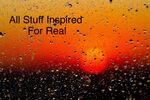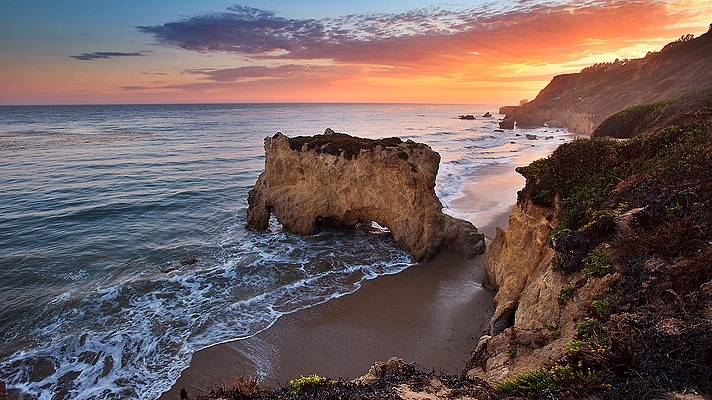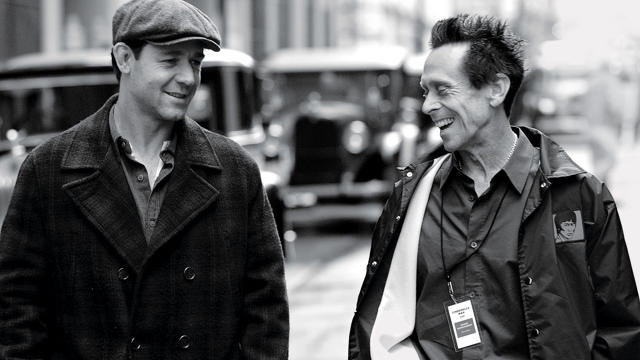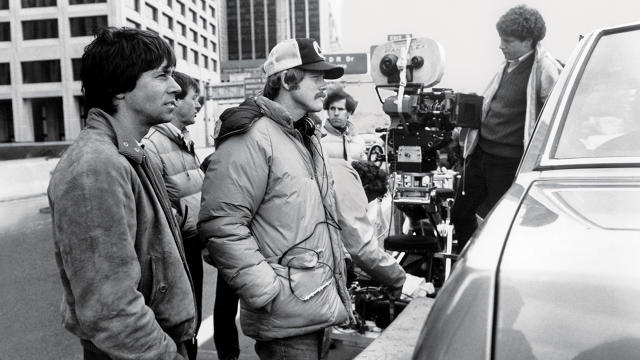Los Angeles is a city that hides its beauty. You've gotta be willing to seek it out. But when you uncover those little hidden pockets of splendor, it's a reminder that you live in one of the most magical places on Earth.
|
I grew up in Los Angeles and never really knew what a beautiful city it is. I never looked at like a tourist might. Sometime in my twenties it started to hit me... this city is has it all. People have always made fun of Los Angeles, yet everybody moves here. Here is an article from Intrepid LA that shows off a lot of special places in and around the Los Angeles area. intrepidla.com
Los Angeles is a city that hides its beauty. You've gotta be willing to seek it out. But when you uncover those little hidden pockets of splendor, it's a reminder that you live in one of the most magical places on Earth.
0 Comments
Great look at Los Angeles...
One of the perks about living in Los Angeles is that our city sure has some gorgeous sunsets. Pair that with some breathtaking backdrops like our stunning downtown skyline, beaches, and sea of palm trees, and you've got yourself a video that makes us fall in love with Los Angeles all over again. LAist & Shutterstock I have found that it is true that you can find inspiration almost anywhere. Obviously really hard life situations can inspire... but just as obvious at times it will not. Lighter less dramatic life or death situations, moments and the arts can also inspire and they should. I feel that if you are willing you can find inspiration everywhere. This video from RIHANNA does just that. This girl has a very Inspiring voice and not just because of the sound of her voice., although that really helps. The images paired with the melody and lyrics of this song "Stay, to me, create a fluid inspiration that can wrap around you and truly inspire. Movie Producer Brian Grazer Explains How Asking The Right Questions Will Make You A Better Boss When you’re out on location, you can be spending $300,000 a day to make a movie. That’s $12,500 an hour, even while everyone is sleeping. When there’s trouble at $300,000 a day, you want to find a way to convince your stars to help you. You want to draw them in, not order them around.
Back in 1991, we were shooting the movie Far and Away. We had Tom Cruise as the lead. Tom was at the top of his career. He was only 29 years old, but he had already made Top Gun, The Color of Money, Rain Man, and Born on the Fourth of July. "Can you be the leader with the cast and crew?" Grazer asked Tom Cruise. "Can you set the example?" Tom isn’t difficult to work with, but Far and Away was a challenging movie to get made. It was an old-fashioned epic, a story of two immigrants leaving Ireland for America at the turn of the last century. We shot in Ireland and the western United States. It got expensive, but it wasn’t overtly commercial. When we figured out what it was going to cost, the studio told me to find ways of cutting the budget. I went to Tom on the set. I said, "Look, you’re not the producer of this movie. But we all want to make it, we all have this vision of a movie we’re doing as artists, a story we care about. It’s going to be expensive, but we can’t spend as much money as it looks like we’re going to. We need to hold the line." I said, "Can you be the team leader here with the cast and crew? Can you be the guy to set the example?" He looked at me and said, "I’m 100% that guy!" Inspiring... He said, "When I have to go to the bathroom, I’m going to run to the trailer and run back to the set. I’m going to set the pace for excellence and respect." And that’s exactly what he did. He led. He was motivated. And he motivated other people. I didn’t tell Tom what to do. I didn’t order everybody to work harder, to make do with less. I explained where we were. Tom appreciated that I came to him with a problem, that I treated him as an equal, that I treated him as part of the solution. I allowed Tom to be curious about both the problem and how to fix it. Asking for people’s help—rather than directing it—is almost always the smart way of doing things, regardless of the stakes. Questions can quietly transmit values more powerfully than a direct statement telling people what you want them to stand for. If I fly to Ireland from Los Angeles and start telling everybody that we need to save money, we need to film faster, cut effects, save costs on the catering—well, then I’m just the L.A. executive who flies in with the bad news and the marching orders. If I sit down quietly with Tom and ask, "Can you be the leader here?" it’s a moment packed with values. We care about this movie. We’ve got to find a way of protecting the integrity of the story while living within a reasonable budget. I need help. And I have so much respect for Tom that I’m asking him to help me solve this problem, to help me manage the whole movie. This is a powerful message, packed into only six words, with a question mark at the end instead of a period. Curiosity at work isn’t a matter of style. It’s much more powerful than that. If you’re the boss and you manage by asking questions, you’re laying the foundation for the culture of your company or your group. You’re letting people know that the boss is willing to listen. This isn’t about being "warm" or "friendly." It’s about understanding how complicated the modern business world is, how indispensable diversity of perspective is, and how hard creative work is. Here’s why it’s hard: because often there is no right answer. That’s why asking questions at work, instead of giving orders, is so valuable. Because most modern problems—lowering someone’s cholesterol, getting passengers onto an airplane efficiently, or searching all of human knowledge—don’t have a right answer. They have all kinds of answers, many of them wonderful. To get at the possibilities, you have to find out what ideas and reactions are in other people’s minds. You have to ask them questions: How do you see this problem? What are we missing? Is there another way of tackling this? How would we solve this if we were the customer? Questions create both the authority in people to come up with ideas and take action and the responsibility for moving things forward. Questions create the space for all kinds of ideas and the sparks to come up with those ideas. Most important, questions send a very clear message: We’re willing to listen, even to ideas or suggestions or problems we weren’t expecting. As valuable as questions are when you’re the boss, I think they are just as important in every other direction in the workplace. People should ask their bosses questions. I appreciate it when people ask me the same kind of open-ended questions I so often ask: What are you hoping for? What are you expecting? What’s the most important part of this for you? Those kinds of questions allow a boss to be clear about things that the boss might think are clear, but which often aren’t clear at all. Indeed, people at all levels should ask each other questions. That helps break down the barriers between job functions and also helps puncture the idea that the job hierarchy determines who can have a good idea. I like when people at Imagine ask me questions for many reasons, but here’s the simplest and most powerful reason: If they ask the question, then they almost always listen to the answer. People are more likely to consider a piece of advice, or a flat-out instruction, if they’ve asked for it in the first place. Imagine is hardly a perfect workplace. We have our share of dull meetings and unproductive brainstorming sessions. We do miscommunicate, we misinterpret, we miss out on some opportunities, and we push forward some projects we should let go. But nobody is afraid to ask a question. Nobody is afraid to answer a question. Below is an Inspiring post from a blog by Lindsey McKeon and a link to The Spirit Science & Metaphysics website. Exploring this info has kind of opened an area in my mind and helped me understand the feelings you get when you are around certain people. I have always wondered about this ... Lindsey draws from a new study that links social anxiety to being an Empath, which means you literally feel what other people are experiencing emotionally. I don't know if I totally believe in all this, but I don't think I have to believe in it completely. I do feel there is something to this. This has happened to me many times and I really never understand why, still don't. The insights from Lindsey and Spirit Science & Metaphysics website give you something to think about.
EMPATHY, INTUITION, AND YOU by Lindsey McKeon Empathy, Intuition, and You. It took me a while to realize that the awkward, uncomfortable, feelings I felt around certain people and groups were not actually coming from me. Instead I was being overloaded with feeling their thoughts and emotions. Now I am aware when someone comes into my space how different their energy might feel than my own, or how different that I initially feel around them. This awareness is a little red flag that helps to keep me feeling safe in my own space. By staying grounded and visualizing a connection to the earth through my feet, I feel more centered. An empathic connection to others is a gift, so long as we don’t lose our own selves in the process. Spirit Science & Metaphysics - Link: http://www.spiritscienceandmetaphysics.com/new-study-links-social-anxiety-to-being-empath/ SON OF THE CONGO - Serge Ibaka managed to escape the war-torn streets of the Congo and play his way to the top of the NBA. In 'Son of the Congo,' he returns to his native country, revisiting the empty lots where he used to sleep, reconnecting with his daughter, and confronting the stark reality facing Congolese youth. The odds are long, but Ibaka imparts his unshakable belief that a better future is possible if you never stop trying. The full length documentary is free on Grantland.com - below is the trailer. Inspiring... PLAYING FOR CHANGE - Smell the Rain This was recorded and filmed live on the streets of Sydney, Australia and features Genevieve Chadwick a very powerful and Inspiring artist. WHILE MY GUITAR GENTLY WEEPS Carlos Santana with India.Arie and Yo-Yo Ma cover George Harrison's Inspiring powerful rendition of While My Guitar Gently Weeps... INSPIRING Photos from around the world by Chris Bavelles - set to the incredible music of Flight Facilities. Photos from FotoMovie available at: cbtweakphotos.com
Really beautiful work by Julian Lennon - and like his father he has an innate desire to make the world a better place and it is inspiring... Here is a nice article by Cait Munro - Artnet News Website/blog HOPE DEFINED JULIAN LENNON'S EERILY BEAUTIFUL PHOTOGRAPHS... Julian Lennon is a true jack of all trades. As a photographer, musician, documentary filmmaker, and yes, the son of John Lennon (with John's first wife Cynthia Powell), he also finds time for charity work with the White Feather Foundation, an environmental and humanitarian outreach organization he founded in 2007. In fact, it was his work with White Feather that inspired "Horizon," his current solo show at Emmanuel Fremin Gallery. In this series of black-and-white and sepia-toned photographs, Lennon attempts to bring back the big skies, sweeping landscapes, and weather-worn but hopeful faces that he encountered on a recent mission to help bring clean drinking water to villages in Kenya and Ethiopia. "I was gobsmacked by it all," Lennon says. "Being there really drew it home, the expanse of the countryside…I just took as many pictures as I could, trying to capture a few odd beauties." When he got home and began to sift through the film, he realized he had somewhere between five and ten thousand shots. The series is a departure from the kind of photography he's best known for—shots of his brother, Sean, on tour; a series of portraits of Charlene, Princess of Monaco taken moments before she was crowned; pensive, behind-the-scenes pictures of the band U2. These are natural subjects, as this is the world Lennon was born into. But like his father, he appears to have an innate desire to make the world a better place somehow. "It's all about the horizon of hope," he says, in reference to the title of both the exhibition and one of the principal works. "You can see that [the subjects] want to move forward with knowledge and wisdom and can do that. And there's every chance for the next generation to have a better life." "[I want people] to get a sense of what other culture's lives are really like," Lennon stated. "Probably something in the future," Lennon said in response to a question about what decade he'd like to live in. "I'd like to see where we go. I've seen where we've been, now I want to know what's ahead." Our only request is that he bring plenty of film with him. by Cait Munro, Tuesday, March 17, 2015 |
Author - Producer, Director & Photographer Chris Bavelles
|






 RSS Feed
RSS Feed
